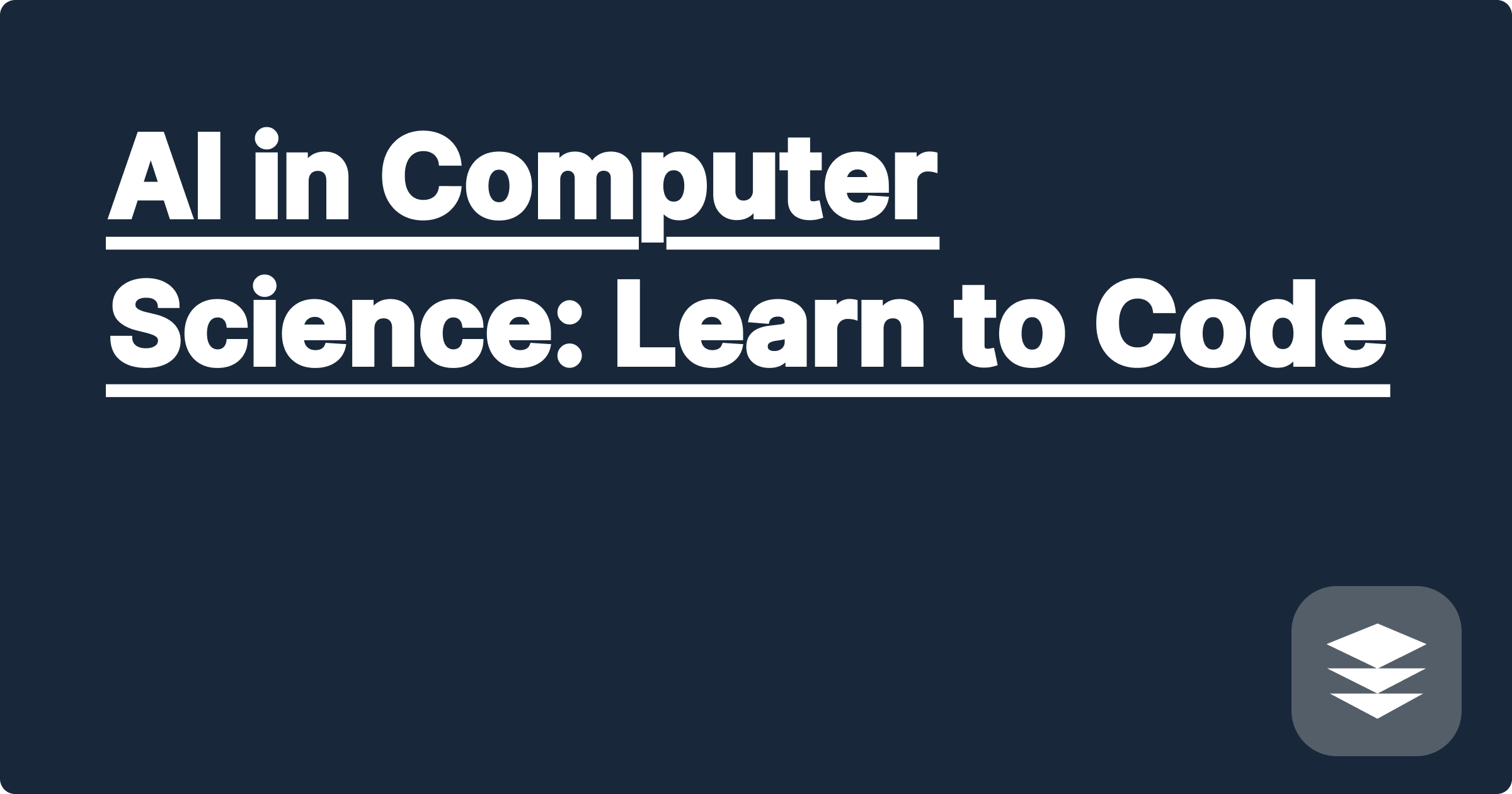
The demands of a STEM education are immense, requiring countless hours of study, complex problem-solving, and a relentless pursuit of knowledge. Students often find themselves overwhelmed by the sheer volume of information and the pressure to perform. But what if there was a way to not just survive, but thrive in this challenging environment? Artificial intelligence is rapidly transforming the landscape of education and research, offering powerful tools to enhance learning, streamline workflows, and unlock new possibilities. This blog post explores how STEM students, particularly those focusing on computer science, can harness the power of AI to learn to code more effectively, boost their academic performance, and gain a competitive edge in their field. We'll delve into specific AI-powered tools and strategies, moving beyond the well-known options like ChatGPT to uncover hidden gems that can truly revolutionize your learning experience.
This is particularly crucial for computer science students, where coding proficiency is paramount. Mastering programming languages, understanding complex algorithms, and completing coding assignments efficiently are essential for success. AI can be a game-changer, providing personalized learning experiences, automated code generation assistance, and intelligent debugging tools. This empowers students to not just learn faster, but also to develop a deeper understanding of the underlying concepts. Imagine having a virtual AI partner that can guide you through challenging problems, provide instant feedback on your code, and even help you discover new approaches to problem-solving. This is the potential of AI in computer science education, and we'll explore how you can unlock it.
Learning to code can feel like climbing a steep mountain. The initial learning curve can be daunting, with unfamiliar syntax, complex logic, and the constant struggle to debug errors. Students often face the challenge of understanding abstract concepts and translating them into functional code. Furthermore, keeping up with the rapid pace of technological advancements and the ever-evolving landscape of programming languages can be overwhelming. Computer science students need tools that can provide personalized support, adapt to their individual learning styles, and offer efficient solutions to coding challenges. This is where AI steps in, offering a personalized and adaptive learning experience that can significantly improve coding skills and boost academic performance.
Imagine having a personalized AI tutor, a Generalized Personal AI (GPAI), available 24/7 to guide you through the intricacies of coding. GPAI can be conceptualized as an integrated AI system that learns your learning style, understands your strengths and weaknesses, and tailors its approach to maximize your learning potential. It can help you create a personalized study plan, break down complex concepts into manageable chunks, and provide targeted practice exercises. Beyond GPAI, several niche AI tools can further enhance your coding journey. Tools like Tabnine and Kite offer intelligent code completion, predicting your next keystrokes and significantly speeding up the coding process. For debugging, tools like DeepCode can analyze your code for potential bugs and vulnerabilities, saving you hours of frustration.
Integrating AI into your coding workflow is seamless. Start by identifying your specific needs and challenges. Are you struggling with a particular programming language? Do you need help with debugging? Once you've identified your needs, explore the available AI tools and choose the ones that best fit your learning style and goals. For example, if you're learning Python, you can use Tabnine or Kite for code completion and DeepCode for bug detection. You can use GPAI to schedule coding practice sessions, track your progress, and identify areas where you need more focus. By integrating these tools into your daily workflow, you can create a personalized learning environment that accelerates your coding skills and boosts your overall academic performance.
Consider a scenario where you're tasked with building a web application using JavaScript. GPAI can help you break down the project into smaller, manageable tasks, suggest relevant learning resources, and even provide sample code snippets. While coding, Tabnine can suggest JavaScript functions and syntax, significantly reducing the time spent searching for documentation. If you encounter errors, DeepCode can analyze your code and pinpoint potential bugs, saving you valuable debugging time. Another example is using Wolfram Alpha, a computational knowledge engine, to solve complex mathematical equations required for your algorithms. By integrating these tools, you can streamline your workflow, reduce errors, and focus on the creative aspects of coding.
To maximize the benefits of AI in your computer science studies, focus on active learning. Don't rely solely on AI for answers; instead, use it as a tool to guide your learning and deepen your understanding. Experiment with different AI tools and find the ones that best suit your learning style. Engage with online communities and forums to share your experiences and learn from others. Track your progress and identify areas where you need more practice. By actively engaging with AI tools and incorporating them into a structured learning plan, you can unlock your full potential and achieve academic excellence.
Concluding this exploration of AI in computer science education, it's clear that these tools offer a powerful pathway to enhanced learning and improved academic performance. Embrace the potential of GPAI and niche AI tools to personalize your learning experience, streamline your workflow, and unlock new levels of coding proficiency. Don't be afraid to experiment, explore, and discover the tools that best fit your individual needs. The future of learning is here, and it's powered by AI. Start your journey today and witness the transformative impact of AI on your computer science education.
AI in Chem Eng: Optimize Lab Processes
AI for Calculus: Instant Problem Solving
AI Biology Tutor: Ace Your Exams
AI for Robotics: Design & Simulate
AI for Stats: Analyze Data Easily
AI in Computer Science: Learn to Code
AI for Materials Science: Discover
AI for Linear Algebra: Solve Equations